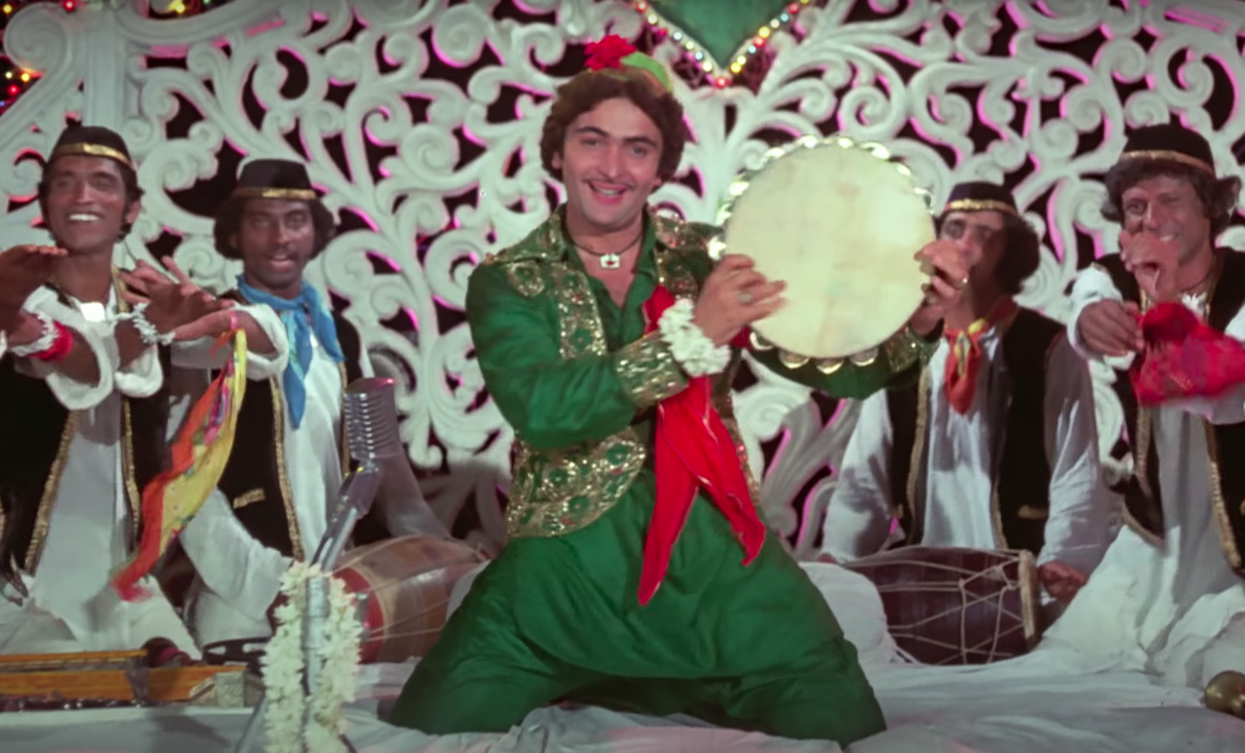
This is probably how they want themselves to be remembered. We received some endearing images during the process – of qawwals dressed up in jeans and T-shirts and wearing sunglasses – and it would have been nearly impossible to produce these images with photographers. It gave them a sense of pride and identity. Soon, the qawwals started enjoying the process because now, they were documenting themselves. I was in touch with the performers, and I asked them to send their photos and selfies to me on WhatsApp. Due to the lockdown and restrictions, the photographers could not travel to the qawwals, and the qawwals couldn’t hold sessions with an audience. The Covid-19 pandemic hit while we were collecting the photographs. And surprisingly, this wasn’t a very concrete idea when we started working on the project. This has become a very lovable part of the exhibition.
OLD HINDI QAWWALI SERIES
Tell us about the “I am a Qawwal” series that is part of the exhibition. This is an unusual project that needed photographers to travel to different locations and click organic photos amidst an audience of hundreds of people, but that is the only way this could have been done. It was then that I started talking to photographers and working on this photo project. For example, the only photo of a legendary qawwal I was in touch with was the one on his ration card.

During our seminars with qawwals, I discovered that a treasure trove of oral traditions associated with qawwali was passed down between generations without any visual documentation of the artists. In 2011, I started hosting talks and mehfils on qawwali, and that was the first time qawwali was brought into an academic format. While they may listen to a Nusrat Fateh Ali Khan composition and nod their heads to it, they actually have no inkling of what the art form really means. I have been personally associated with qawwali for 25 years as part of my own productions, and over the years, I have realised that people don’t know much about qawwali. I started documenting the lives of qawwals almost a decade ago. The Qawwali Photo Project was started five years ago, but that was not the beginning of my association with qawwals or the history of qawwali.

What inspired you to curate this exhibition? Scroll.in spoke to Manjari Chaturvedi about the exhibition and her experience of working with qawwals over the years. The photo project not only documents the qawwals in their work environment with their audiences but also presents glimpses of their lives beyond their performances. It celebrates the art and oral traditions passed through generations while preserving its history through photographs. The exhibition aims to explore the song form “through the power of images, as a means of expression and communication”. To capture practitioners of the song form in action, photographers Dinesh Khanna, Mustafa Quraishi, and Leena Kejriwal travelled to Delhi, Hyderabad, Dewa Sharif, Safipur and beyond. “The present will not value my work but I strongly feel that history will appreciate it,” she said. “When we started the project, many people expressed concern about the futility of the exercise,” said kathak dancer Chaturvedi, the president of Sufi Kathak Foundation. “There are certain things that must be done for the sake of history.” That was Manjari Chaturvedi’s motivation for curating the Qawwali Photo Project, an exhibition of photographs featuring the lives of qawwals across the country, currently on display at Delhi’s India International Centre. Data check: India is no paradise for visiting spinners and pacers are actually more successful.What I learned by rehabilitating the world’s smallest wild cat near Pune.Over 6 lakh Indians gave up their citizenship in last five years, Centre tells Lok Sabha.Are two decades of human rights activism in Kashmir drawing to a close?.Fact check: No, Noida’s Jewar airport won’t be Asia’s largest airport.International flights will not resume from December 15, says India’s aviation regulator.Bank unions call for two-day strike from December 16 to protest Bill proposing privatisation.For question on 2002 Gujarat riots in sociology exam, CBSE to take strict action.Does the AstraZeneca vaccine give longer-lasting protection than Pfizer and Moderna shots?.



 0 kommentar(er)
0 kommentar(er)
